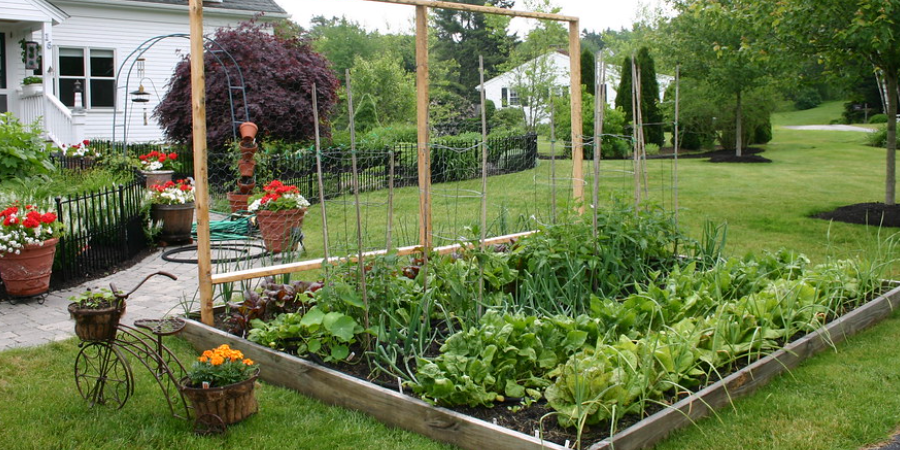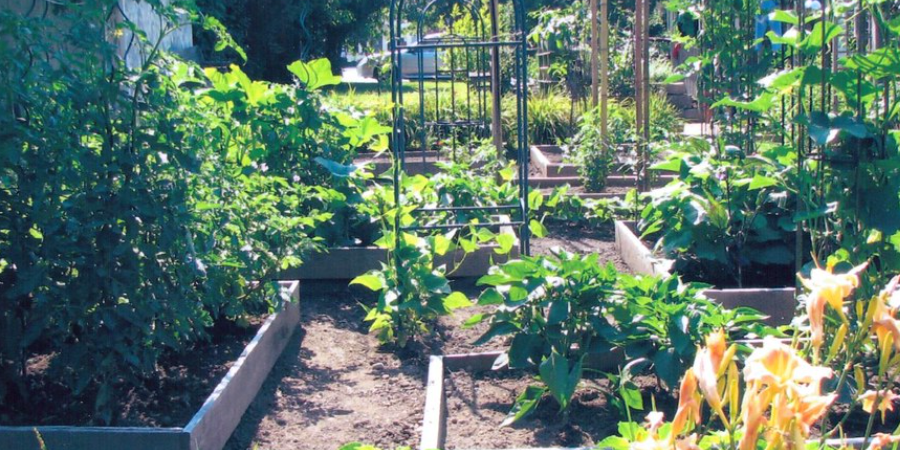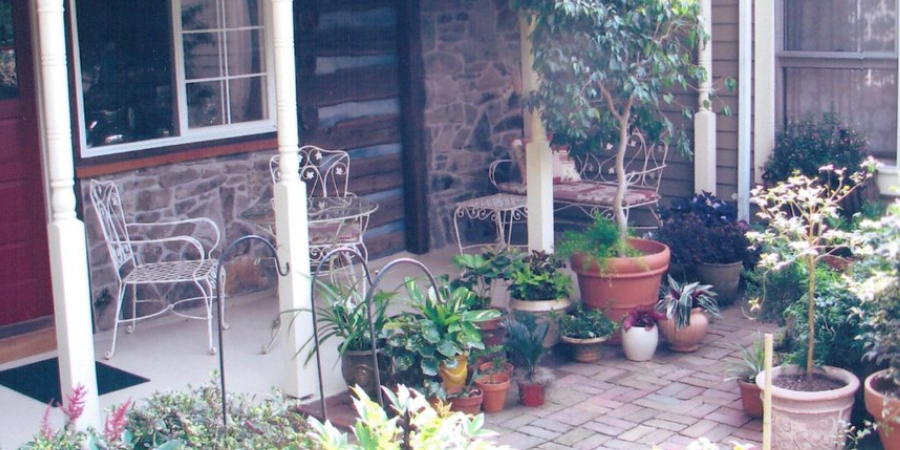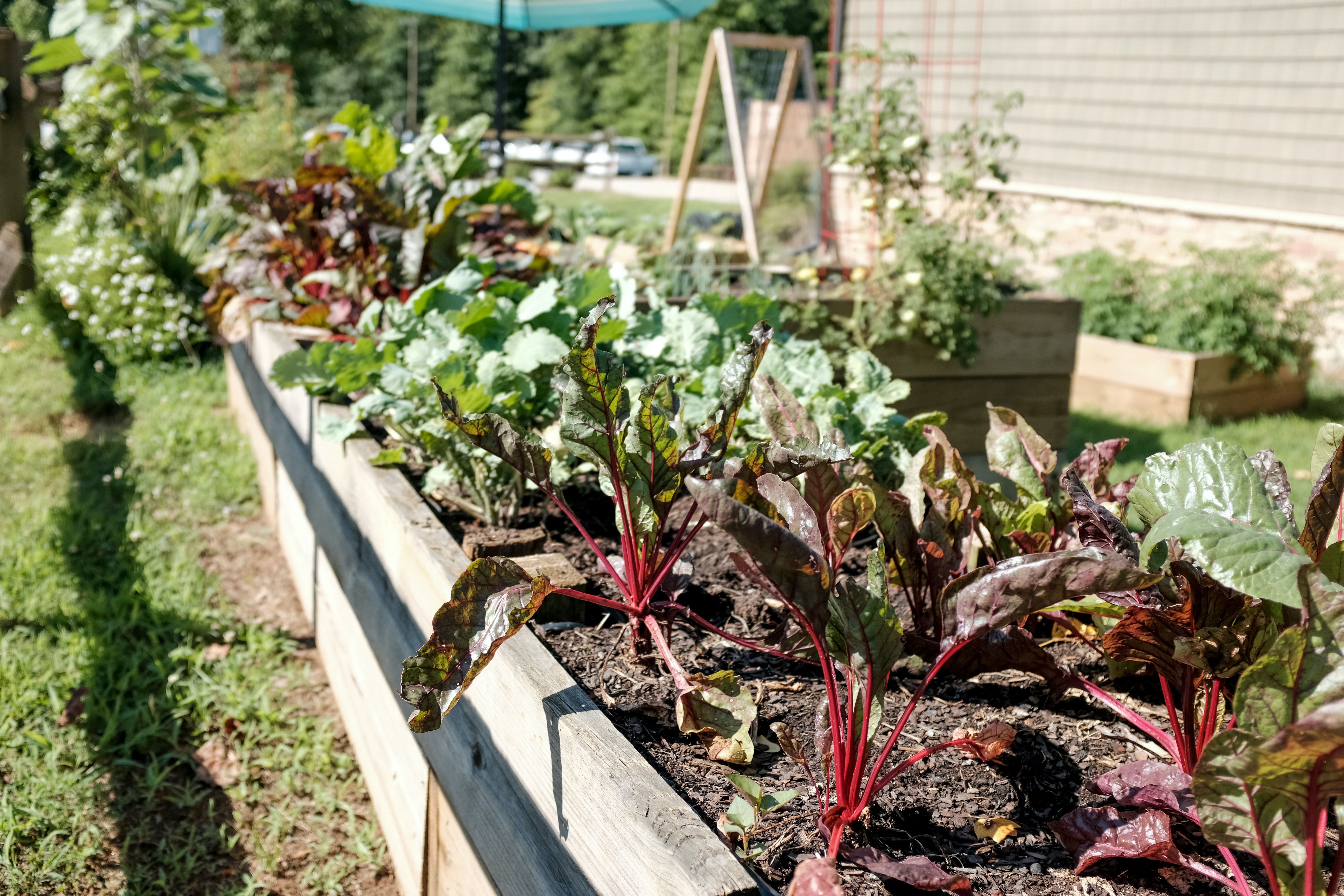Growing a garden has a lot of benefits that are not only aesthetic or stylistic, they are also mental. Many people find that growing and tending to a garden is a relaxing and psychologically beneficial undertaking. It is especially true if you get to grow food in your garden and can sustain yourself and others with the literal fruits of your labor.
However, some people worry about whether or not it is illegal to grow their own food. The truth is, there are some regulations that you should think about when you are working on your own garden. Knowing what they are will help your garden be a success and let you grow the kind of food you want for you, your family, and your neighbors.
Is it Illegal to Grow Your Own Food?
Image credits: National Garden Clubs via Creative Commons
In general, it is not illegal to plant a garden for food production. As long as you grow food allowed in your particular state or country, there shouldn’t be any issues with an edible garden. In fact, there are edible community gardens in many different areas of the country, and they have become very popular in recent years.
The only time it might be illegal to grow your own food is if you are trying to grow something that isn’t native to the area. Sometimes, invasive species of plants can have a detrimental effect on the surrounding organisms like animals and other plants, especially if they are not in season. It is why you are usually not allowed to bring fruits or vegetables into another state when crossing borders.
When Can You Not Have a Front Yard Vegetable Garden?
Image credits: National Garden Clubs via Creative Commons
While it is usually not illegal to have a vegetable garden in your front yard, there may be some zoning laws that you need to follow. Depending on the city ordinance in your municipality, there could be a limit on how tall your plants can be and how lush they can be. It is aesthetic and could also be a safety and zoning code concern.
These safety concerns will usually come from the city you live. Before you plant a garden with tall plants like corn or sunflowers, make sure you check with your local government. Your HOA, if you have one, also may take issue with the aesthetics of the garden, so it is a good idea to clear it with them.
What Are the Rules for Front Yard Vegetable Gardens?
Image credits: J. Tewell via Creative Commons
Front yards are visible from the street, which means they usually have to follow the same rules as city properties. Plants taller than 12 inches can potentially block visual access to roads and cause traffic hazards. It is especially true if you live in a corner and could create a blind turn.
Food gardens are usually regulated by how they look. As long as you keep your front yard garden pruned and looking nice, your HOA shouldn’t have any issue with it. It is only when it starts to get overgrown or untended that your homeowner’s association might have to take issue with it. However, this doesn’t have anything to do with whether or not you are growing food for personal consumption.
What About Backyards?
Image Credits: Jonathan Hanna on Unsplash
For the most part, you can grow any food you want in your backyard. As it stands with most HOAs, as long as your garden isn’t blocking any visual access, there shouldn’t be a problem. As long as you try to keep your garden height below your fence line, there is no reason for them to take any issue with it.
The only people you might have to worry about are your neighbors. If your neighbors have a problem with how your backyard garden looks, they might complain. However, some fresh fruit or vegetables that you have grown yourself might be able to convince them to let bygones be bygones.
Grow Your Own Food Whenever Possible
While there have been stories about gardens for human consumption being disallowed in certain parts of the country, these are usually highly individual cases. They are also more about the height of the plants being against the city code than the fact that someone was growing food. For the most part, you shouldn’t have any problems planting a vegetable garden in your front yard.
Cultivation of food plants is not only legal, but it is also incredibly rewarding and good for the environment. Sustainable food is the way of the future, and gaining the necessary skills is always a good idea.
Do you have a front yard vegetable garden that you love? Let us know about it in the comment section below!





